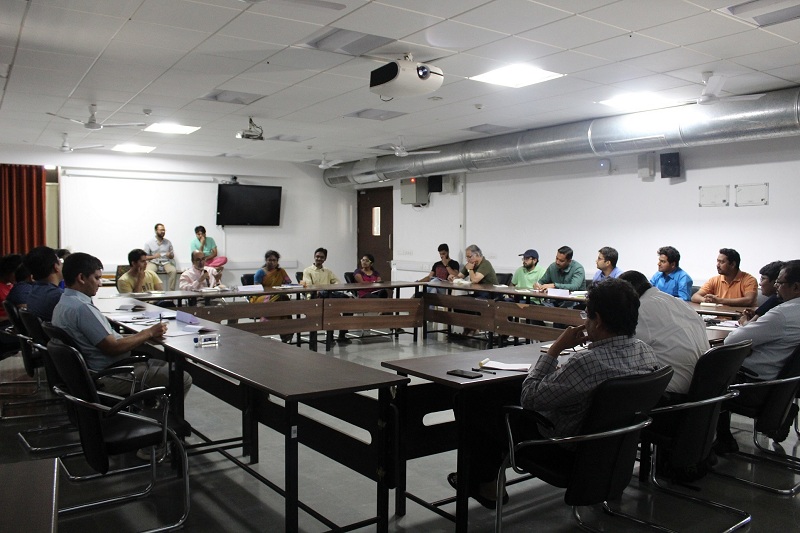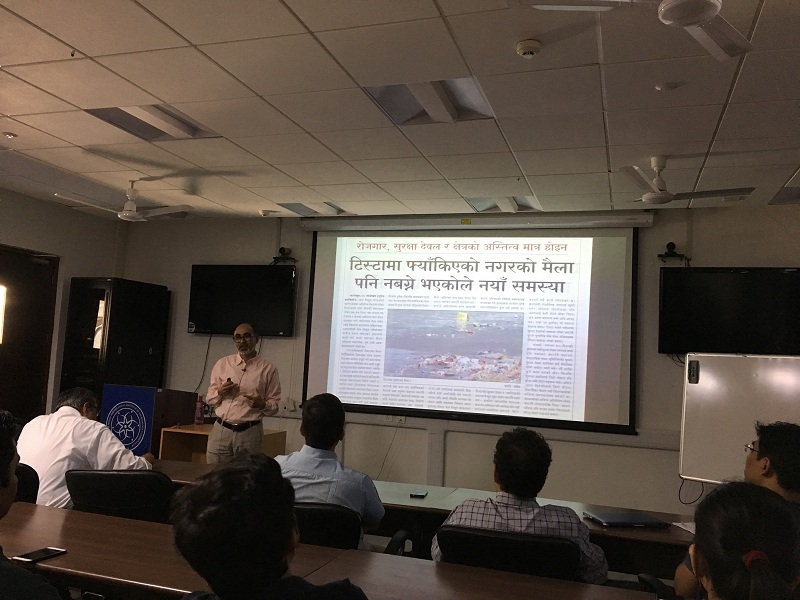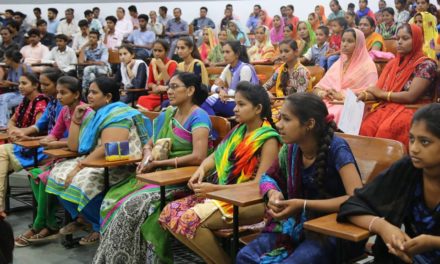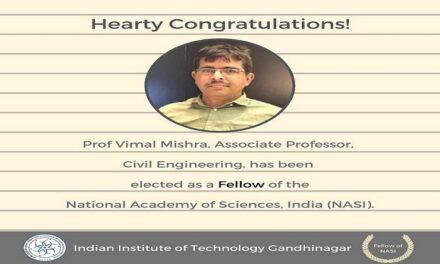
The disciplines of Earth Science and Humanities & Social Sciences at the institute organised a session on Environmental Governance on April 18. The session was held in two parts, a descriptive talk on Environmental Governance followed by a panel discussion on the involvement of scientists in governance.
Prof Shrawan Kumar Acharya, professor at the Centre for the Study of Regional Development, School of Social Sciences, Jawaharlal Nehru University, New Delhi delivered a talk on Development Discourse and Environmental Conflicts in Sikkim Himalayas where he raised concerns and conflicts being faced by Sikkim in the wake of development.
The talk focused on the haphazard encroachment and industrial development happening in the catchment areas of Teesta river which can prove to be hazardous to the local environment, ecology and the community. Professor Acharya pointed to the fact that many big pharmaceutical companies from across the country and mainly Gujarat are setting up their industrial facilities along the river bank in Sikkim after the new Sikkim Industrial Promotion and Incentive (Amendment) Act, 2007 came into effect, which gives many perks to the industries. But without adequate facilities to treat industrial wastewater, the river in the state has to bear the cost of the development.
He also highlighted how increasing urbanisation and rural tourism development has also been putting tremendous pressure on the carrying capacity of the state. Some of the indigenous communities like the Lepchas who are the most affected are resisting the state policies, but with little or no impact till date. “If you want to have environmental governance, you have to take into account the river basins. Environment governance has to follow natural boundaries and not political or administrative boundaries”, he concluded.
The panel discussion titled Scientists in Governance had natural scientists, namely Prof Vikrant Jain and Prof Manish Kumar Singh from IITGN, social scientists Prof Shrawan Kumar Acharya from JNU and Dr Ambika Aiyadurai from IITGN, and governance specialists Dr Ashwani Kumar from CEPT University, Prof Pranab Mohapatra from IITGN and Mr Bharat Pathak as panelists along with young researchers.
The natural scientists pointed out the issues of development along the river basins and cited an example of the Kosi river floods. They stressed that there needs to be a good interface between policymakers, implementer and scientists. The social scientists raised the concern over the limited influence capacity of scientists over the policymakers and the implementer because of the larger politics that happens around the development. They recommended conducting the social impact assessment in developmental projects just like environmental impact assessment to take into account concerns of the local communities. Governance specialists advocated that everyone, including the communities, should work together to find solutions to any problem in governance. They reiterated that scientists have a role to play everywhere and their knowledge should go out of the confines of academics and should reach to general people in their languages for a larger good. Scientists need to extend their role to reach people.
Interestingly, the event was conceived and organised by Omi Kumari, a second-year MA student at the institute.





